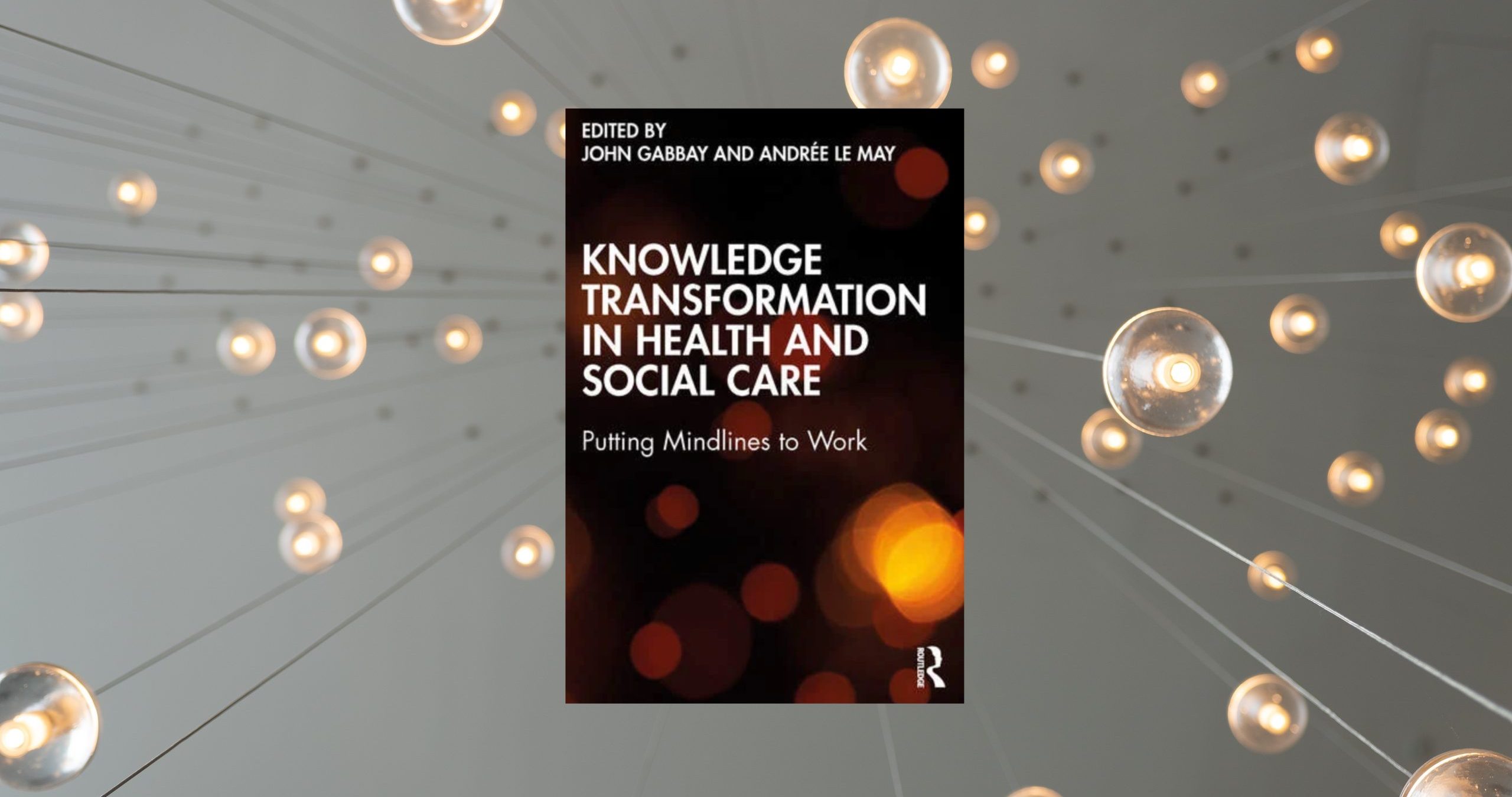
There is no doubt that we urgently need more capacity in primary healthcare, but we also urgently need change. We have seen repeated calls for a shift in culture and practice across primary healthcare and the wider health service (e.g. Ridge, Fuller, Tiratelli). In this, their second book on the concept of mindlines, Gabbay and le May describe how front-line clinicians are actively working to do just that.
Guidelines were never intended to be the tramlines that they have become. Critical reviews have repeatedly described the impossibility of applying all guidelines in real world practice. In my research, clinicians describe how guidelines (and the linked care pathways and contracts) have become barriers to delivery of whole-person-centred healthcare. The culture shift sought by policy makers – ensuring healthcare is a support for, rather than burden on, the work of daily living – is being blocked by the tool that policy makers continue to use to ‘support’ best practice, namely guidelines.
In my research, clinicians describe how guidelines (and the linked care pathways and contracts) have become barriers to delivery of whole-person-centred healthcare.
Gabbay and le May’s latest book describes the work both needed, and being delivered on the ground, to transform guidelines (summaries of ‘best evidence’) into the resource they were intended to be – support for practice-in-context.
In their original BMJ paper, and the first book that followed, Gabbay and le May presented an alternative vision of guidelines for healthcare. Based on extended observation of the work of front-line general practice, they described how clinicians work to transform externally developed guidelines-for-best-practice, into internally created, used and critiqued mindlines-for-best-practice-in-context. This latest follow-on volume offers us eleven additional case studies of this work from across clinical disciplines, including dentistry, physiotherapy, palliative care and general practice; and across health service delivery, including guideline development and responses to the COVID pandemic. All describe how health professionals work together to critically create new understanding-in-context and new ways of working for everyday practice through the generation of mindlines. It celebrates the scholarship of everyday professional practice and so contributes to driving the changes we so urgently need.
This is important work. Our award-winning CATALYST programme – delivered to new to practice GPs in Humber – demonstrates how being involved in the knowledge work of everyday practice can support GPs to develop a new understanding of, motivation for, and confidence in their professional roles. The wider WiseGP programme works to champion, enable and sustain knowledge across the general practice community and so help us to reclaim general practice .
There is much to discuss and debate in the ideas presented in this book. For me, the biggest question is to ask whether mindlines are ‘a thing’ or ‘a process’. Gabbay and le May define mindlines as “guidelines-in-the-head that accumulate throughout [clinicians’] careers” created through “collective sense making”. They describe that these “contextual nuanced guidelines” are slowly developed but allow experienced clinicians to rapidly respond to complex everyday problems – enabling what Gabbay and le May describe as “contextual adroitness”.
… the case studies presented in the book focus largely on the process of knowledge work, rather than the outcome (nuanced-guidelines) generated by that work.
Yet the case studies presented in the book focus largely on the process of knowledge work, rather than the outcome (nuanced-guidelines) generated by that work. The case studies resonate with the principles and practice described in my own work on Advanced Generalist Medicine (AGM) and WiseGP. Both WiseGP and AGM emphasise a dynamic understanding of knowledge work – of creating, using and critiquing knowledge-in-context in order to deliver tailored whole-person healthcare. Here, contextual adroitness is seen to result from how we use what we know, rather than what we know (see Wenzel 2017).
In reality, busy clinicians probably need and use both locally developed knowledge and the skills of knowledge work to navigate complex practice. Gabby and le May recognise that “much more work still needs to be done to put the [mindline] model into practice”. Understanding the relative contributions of both the processes and outcomes of knowledge work, and therefore the implications for training and service design, is one such area for study. Fortunately, Professors Gabbay and le May and I have a new grant to look further into just that issue…
This book provides examples of not only knowledge transformation, but also healthcare transformation. It offers ideas and inspiration to those engaged in modernising healthcare; whilst delivering challenges to the politicians and policy makers engaged in healthcare redesign. Most of all, to the front-line clinicians caught in a model of healthcare delivery that isn’t working, it offers hope.
Deputy Editor’s note: See also review by Trisha Greenhalgh
Featured Book: Knowledge Transformation in Healthcare: Putting Mindlines to Work edited by John Gabbay and Andrée le May, Routledge 2022, ISBN 9780367746162, 262 Pages, HB £120 PB £34.99
Featured photo by Skye Studios on Unsplash









‘More of the same won’t fix general practice.’ So, what should we be doing differently? The Lazarus project is designed to take GPs out of ‘usual care’ to a different space for professional prac